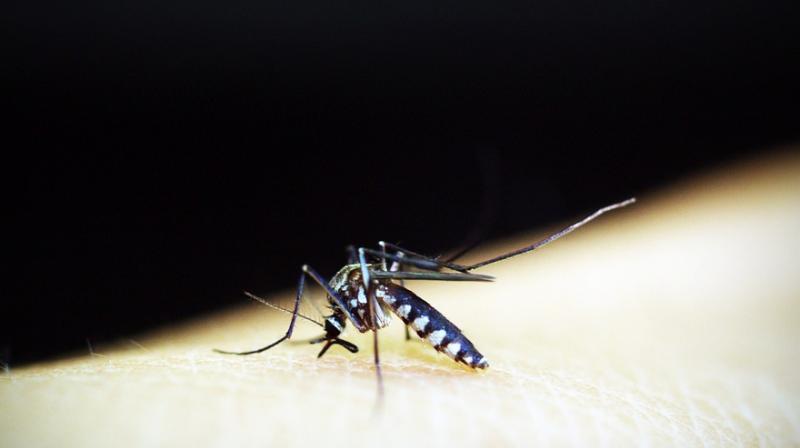Karnataka winning battle against Malaria
No malaria cases have been registered within BBMP limits so far this year.

Bengaluru: The Department of Health and Family Welfare is observing this year’s World Malaria Day (April 25) with the theme ‘Zero Malaria starts with me'. The state government aims to eradicate the disease by 2022.
Malaria is a communicable disease, transmitted by female Anopheles mosquitoes. The disease is caused by Plasmodium, a single-celled parasite.
Female Anopheles mosquitoes pick up the parasite when they bite infected people. Inside the mosquito these parasites reproduce and develop. When the mosquito bites again, the parasites contained in the salivary gland are injected and pass into the blood of the person being bitten.
Due to various measures taken by the health department, the state has seen a fall in the number of malaria cases. In 2017, a total of 7, 381 cases were registered, while in 2018 it came down to 5, 289 cases. It must be noted that in 2014 it was as high as 14,794 and even caused two deaths.
It is interesting to note that this year no malaria cases have been registered within BBMP limits so far. The health department has instructed all the BBMP health officers to take preventive actions to bring down those infected by Malaria to zero.
Some of the action plans adopted by the health department include introduction of ‘Early Detection and Complete Treatment’ activities prompting all diagnosis within 24 hours with complete radical treatment of confirmed cases, availability of most effective anti-malarial drug (ACT) to treat Plasmodium Falciparum Malaria cases, integrated vector management approach based on local situations and many such measures were undertaken.
The officials from the Department of Health and Family Welfare said, “The State is on the verge of eliminating malaria well ahead of the fixed target and is committed to achieve the goal of ‘Health for all and Health Everywhere’, which is the concept of the Department of Health and Family Welfare.”
However, Dr Sudha Menon, Director, Internal Medicine, Fortis Hospital, Bannerghatta Road, struck a note of caution. She said the disease was still all-pervasive and in epidemic proportions due to political apathy, poor infrastructure, poverty, resistance to anti-malarial drugs and lack of an effective malaria vaccine.
“Even today people lack awareness about the disease in the non-epidemic areas. Being aware of the early symptoms is the first step towards taking combating the disease. Prevention also plays an important role. People should be aware of the various control measures available in order to avoid this life-threatening disease. Geographical factors, migration patterns and recrudescence of malarial parasites are contributory factors.”
She also pointed out that the WHO (World Health Organisation) has released a campaign for 'Zero malaria starts with me' to foster an environment of accountability and action among the malarial prone countries.

